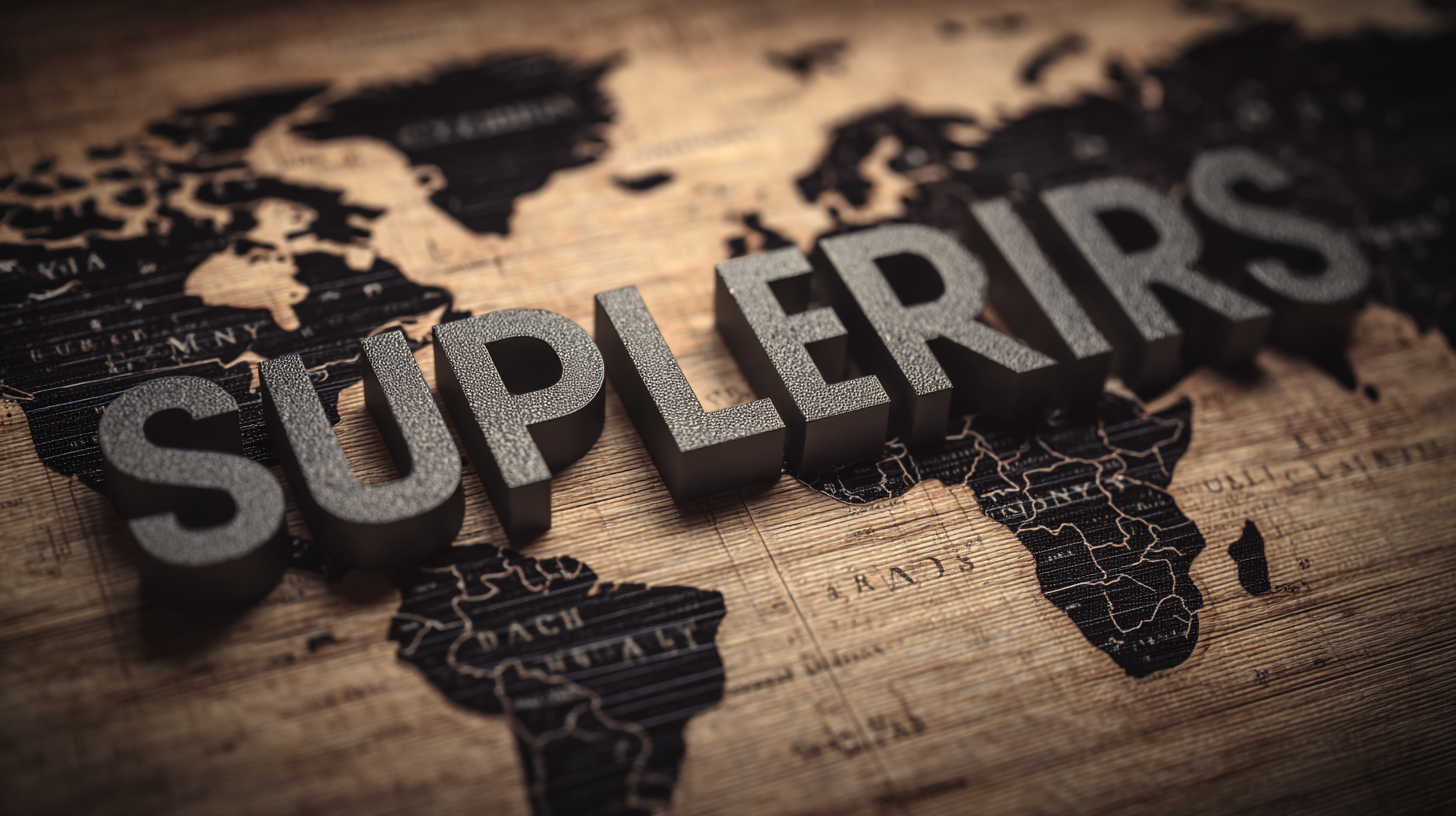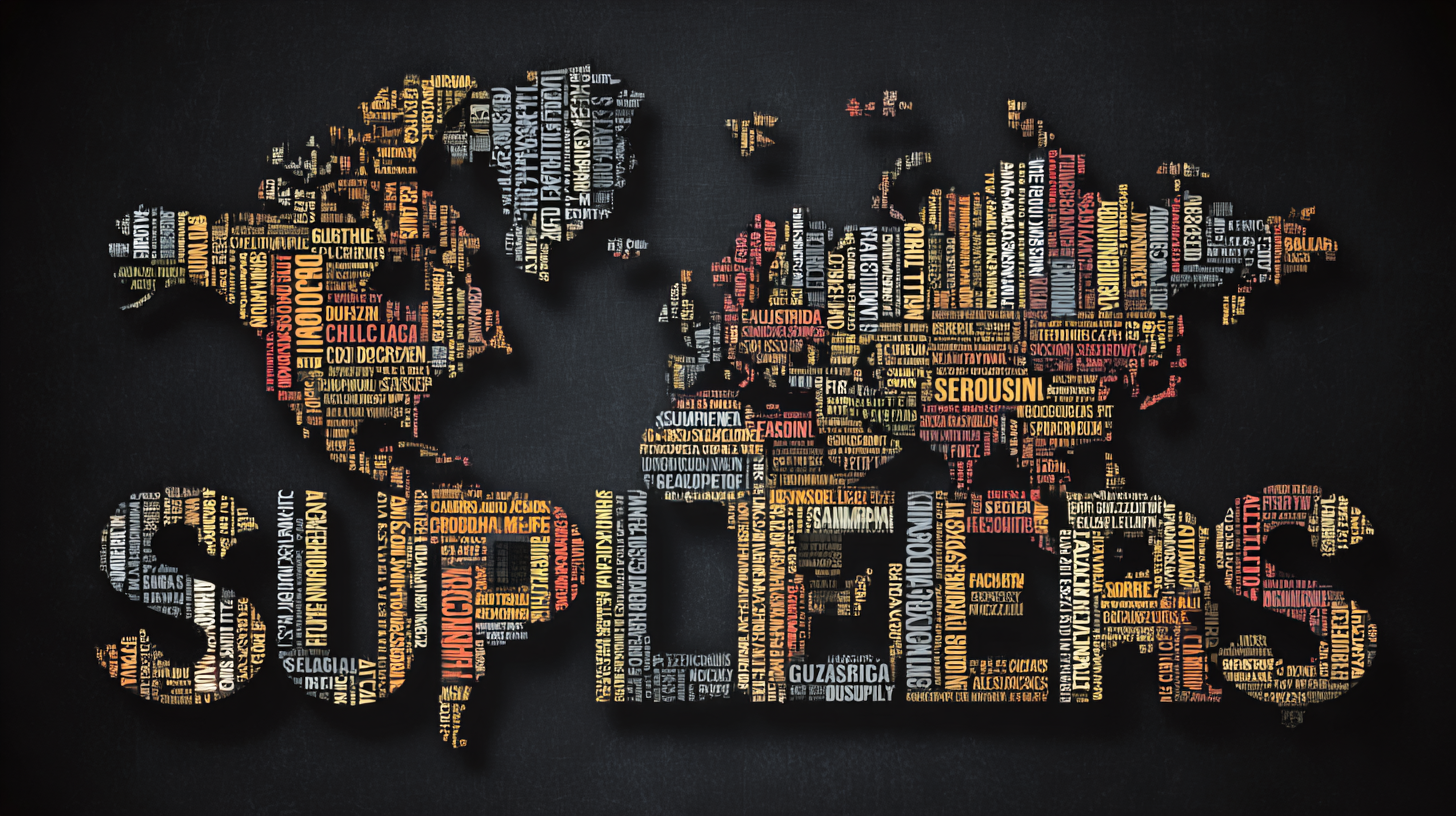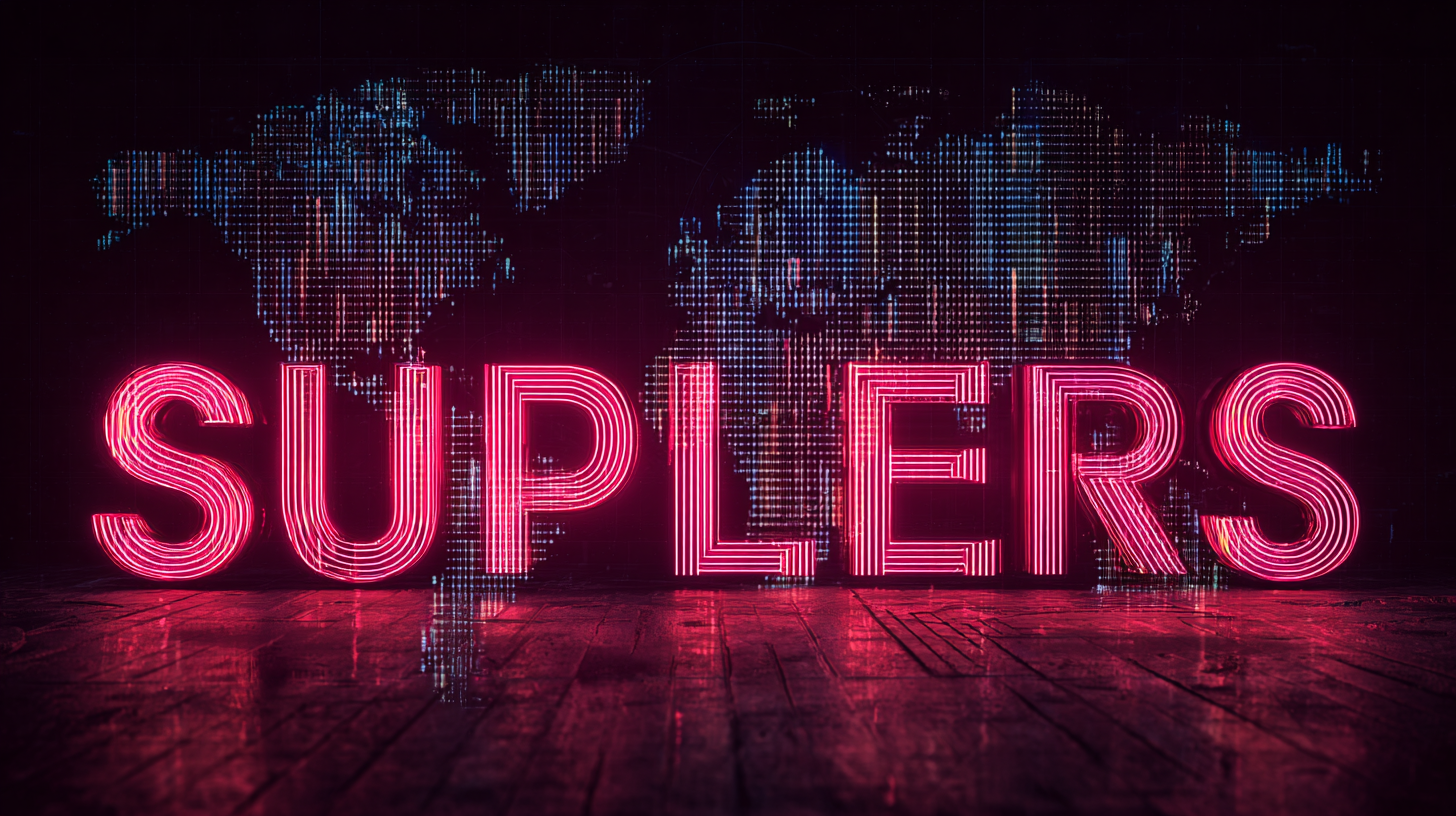
How to Identify the Best Suppliers for Your Global Sourcing Needs
In today’s interconnected world, identifying the best suppliers for your global sourcing needs is crucial for maintaining competitive advantage and ensuring quality products. According to a recent report by McKinsey & Company, companies that effectively manage their supplier relationships can reduce procurement costs by up to 20%. Furthermore, China's manufacturing sector plays a pivotal role in global supply chains, with exports projected to reach over $2.5 trillion in 2023, highlighting the importance of sourcing from top-tier suppliers in this region. As businesses seek to optimize their supply chains, understanding how to evaluate and choose the right suppliers becomes essential for success. This blog will explore the strategies for identifying optimal suppliers that not only meet quality standards but also align with your organization’s long-term goals in the dynamic global marketplace.

Identifying Key Product Characteristics for Effective Supplier Selection
Identifying key product characteristics is crucial for effective supplier selection in global sourcing. According to a report by the International Trade Centre, around 70% of sourcing professionals highlight product quality as the primary factor influencing their supplier choice. Factors such as durability, compliance with international standards, and material authenticity should be carefully evaluated to ensure the products meet market demands and local regulations. A well-defined product specification can mitigate risks associated with non-compliance and enhance overall supply chain efficiency.

In addition to product quality, pricing strategies play a significant role in supplier selection. A study by McKinsey & Company found that companies often select suppliers based on cost competitiveness, which can account for up to 20% of a company's total cost of goods sold. However, a narrow focus on price can be detrimental; sourcing managers should also consider total cost of ownership, which includes shipping, tariffs, and inventory holding costs. By balancing these product characteristics, businesses can cultivate a robust supplier base that aligns with their strategic sourcing objectives.
Understanding Product Applications to Enhance Sourcing Decisions
Identifying the best suppliers for global sourcing is essential for businesses aiming to enhance their product offerings and maintain competitive advantages. Understanding product applications plays a pivotal role in making informed sourcing decisions. According to a recent study, consumers are increasingly prioritizing sustainability in their purchasing choices, leading to a marked sales growth for eco-friendly products. This shift emphasizes the importance of sourcing suppliers who not only provide quality products but also align with sustainable practices that meet evolving consumer demands.
Moreover, the integration of generative AI within supply chain management can further streamline sourcing processes. AI technology has been shown to significantly boost productivity and transform traditional purchasing strategies by providing real-time data analytics and predictive insights. Companies that leverage such innovations are likely to identify suppliers that best meet their specific product applications while simultaneously reducing their environmental impact. As procurement teams take on a more strategic role, understanding the intersection of product applications and responsible sourcing will be crucial in shaping a sustainable value chain.
Supplier Performance Analysis for Global Sourcing
Evaluating Supplier Capabilities Based on Product Types
When evaluating supplier capabilities based on product types, it's crucial for businesses to consider various factors that align with their global sourcing strategies. Different products require unique manufacturing processes, certifications, and quality standards. Therefore, identifying suppliers that excel in specific areas is essential for ensuring product integrity and consistency. This can involve assessing their technological proficiency, workforce expertise, and compliance with industry standards, which can vastly differ across different regions.
In today's dynamic market, sustainability has become a critical criterion for supplier evaluation. Companies must assess suppliers not only for their ability to produce quality products but also for their commitment to sustainable practices. This includes evaluating a supplier's environmental impact, labor practices, and adherence to ethical sourcing guidelines. A robust supplier relationship is built on transparency and shared values, where both parties are invested in sustainable business practices that contribute to long-term success. By focusing on these aspects during the supplier identification process, businesses can foster partnerships that not only meet their product needs but also align with their corporate social responsibility goals.
Assessing Market Trends to Align Supplier Choices with Product Needs
In today's rapidly evolving global marketplace, aligning supplier choices with market trends is crucial for businesses looking to optimize their sourcing strategies. Recent reports indicate that as of 2025, the online wholesale market is projected to grow significantly, democratizing B2B e-commerce for independent brands and small retailers. This shift underscores the importance of identifying suppliers who can not only meet current product needs but also adapt to changing demand patterns, thus fostering long-term partnerships.
Moreover, the fierce competition among AI technology providers has led to a surge in AI-native applications, emphasizing the need for suppliers who are at the forefront of technological advancements. Companies that leverage suppliers equipped with innovative solutions can gain a competitive edge in addressing customer demands promptly. As these market trends continue to evolve, businesses must remain vigilant, continuously assessing supplier capabilities and market dynamics to align their sourcing strategies effectively with product requirements.

Developing Strong Supplier Relationships for Diverse Product Categories
Building strong supplier relationships is crucial for effective global sourcing, especially when dealing with diverse product categories. Understanding the unique needs of each supplier can help you create a collaborative environment. Trust and transparency are essential; sharing your company’s objectives and challenges allows suppliers to align their capabilities with your requirements. Regular communication ensures that any potential issues are addressed promptly, helping to foster a partnership built on mutual respect and understanding.
Moreover, investing time in nurturing these relationships can lead to significant advantages. Working closely with suppliers allows for better negotiations and more favorable terms, while also facilitating innovation. Suppliers who feel valued are more likely to offer insights into market trends and new technologies that can optimize your product offerings. In diverse product categories, this can be particularly beneficial, as suppliers often have specialized knowledge that can enhance product development and reduce time to market. Prioritizing these relationships not only improves your sourcing strategy but can also drive long-term success for your business.
How to Identify the Best Suppliers for Your Global Sourcing Needs - Developing Strong Supplier Relationships for Diverse Product Categories
| Supplier Category | Supplier Location | Lead Time (Days) | Quality Rating (1-5) | Cost Index (Low/Medium/High) | Sustainability Rating (1-5) |
|---|---|---|---|---|---|
| Electronics | China | 30 | 4 | Medium | 3 |
| Textiles | India | 20 | 5 | Low | 4 |
| Automotive Parts | Germany | 25 | 5 | High | 5 |
| Consumer Goods | USA | 15 | 4 | Medium | 4 |
| Food Products | Brazil | 10 | 4 | Low | 5 |
